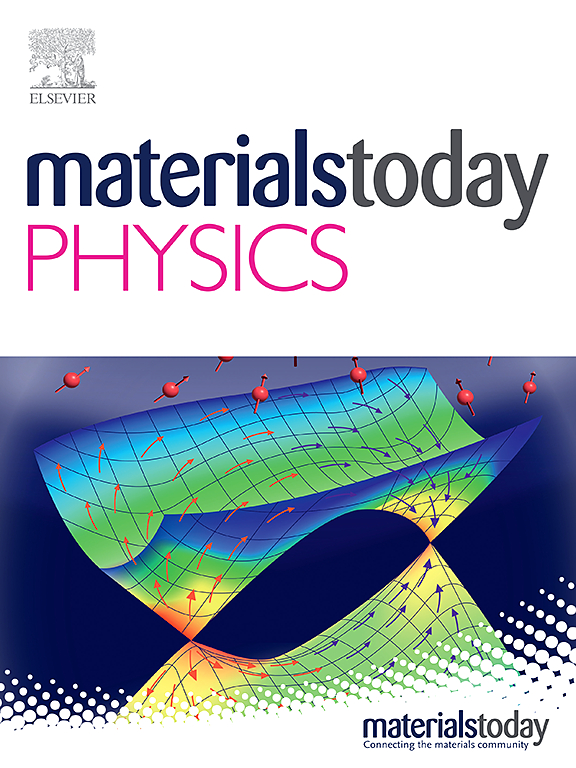通过Lu掺杂,La3Ni2O7块体的常压绝缘体到金属的转变
IF 9.7
2区 材料科学
Q1 MATERIALS SCIENCE, MULTIDISCIPLINARY
引用次数: 0
摘要
近年来,双层镍酸盐La3Ni2O7在80 K附近高压下的高温超导性的发现,加强了在环境压力下稳定类似电子态的努力。在这里,我们研究了化学掺杂是通过用更小的稀土(RE)离子取代La3+来调整La3Ni2O7本体基态的途径。通过系统合成和RE掺杂La3Ni2O7 (RE = Y, Nd, Dy, Lu)的电输运测量,我们发现Y, Nd和Dy取代保留了母体化合物的半导体行为。引人注目的是,掺杂最重的稀土元素,镥(Lu),诱导了一个大气压绝缘体到金属的转变。这一结果强调了化学压力在改变电子相关性中的关键作用,并证明了靶向离子取代可以在没有施加物理压力的情况下进入镍酸盐中的新兴量子相。我们的工作建立了化学掺杂作为一种探索和控制相关镍酸盐体系中外来电子态的通用策略。此外,高压测量显示,化学掺杂从根本上改变了系统的量子响应,突出了两种方法在获取不同量子相方面的协同作用。本文章由计算机程序翻译,如有差异,请以英文原文为准。
Ambient-pressure insulator-to-metal transition in bulk La3Ni2O7 via Lu doping
The recent discovery of high-temperature superconductivity near 80 K under high pressure in the bulk form of bilayer nickelate La3Ni2O7 has intensified efforts to stabilize analogous electronic states at ambient pressure. Here, we investigate chemical doping as a route to tuning the ground state of bulk La3Ni2O7 by substituting La3+ with smaller rare-earth (R) ions. Through systematic synthesis and electrical transport measurements of R-doped La3Ni2O7 (R = Y, Nd, Dy, Lu), we find that Y, Nd, and Dy substitutions retain the semiconducting behavior of the parent compound. Strikingly, doping with the heaviest rare-earth element, lutetium (Lu), induces an ambient-pressure insulator-to-metal transition. This result highlights the critical role of chemical pressure in modifying electronic correlations and demonstrates that targeted ion substitution can access emergent quantum phases in nickelates without applied physical pressure. Our work establishes chemical doping as a versatile strategy for exploring and controlling exotic electronic states in correlated nickelate systems. Complementarily, high-pressure measurements reveal that chemical doping fundamentally alters the system's quantum response, highlighting the synergy of both approaches for accessing diverse quantum phases.
求助全文
通过发布文献求助,成功后即可免费获取论文全文。
去求助
来源期刊

Materials Today Physics
Materials Science-General Materials Science
CiteScore
14.00
自引率
7.80%
发文量
284
审稿时长
15 days
期刊介绍:
Materials Today Physics is a multi-disciplinary journal focused on the physics of materials, encompassing both the physical properties and materials synthesis. Operating at the interface of physics and materials science, this journal covers one of the largest and most dynamic fields within physical science. The forefront research in materials physics is driving advancements in new materials, uncovering new physics, and fostering novel applications at an unprecedented pace.
 求助内容:
求助内容: 应助结果提醒方式:
应助结果提醒方式:


